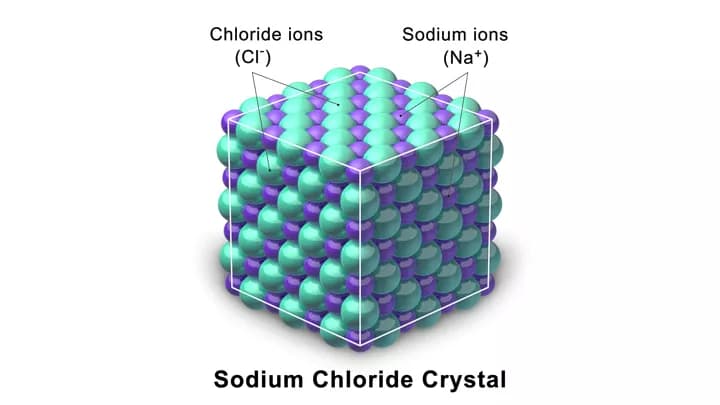What are the other Names for this Test? (Equivalent Terms)
- Iontophoretic Sweat Test
- Sweat Electrolytes Test
- Sweat Test
What is Sweat Chloride Test? (Background Information)
- Chloride is an anion (negatively charged ion) that helps in regulating the body fluid amount and acid-base balance, along with sodium, potassium, and bicarbonate
- It is found in all body fluids, but is present in higher concentrations outside of the cells
- The body gets chloride through food; excess chloride is eliminated by the kidneys via urine. Sodium and chloride are also lost as salt through sweat
- Chloride ion movement, into and out of cells, occurs through a protein called CFTR (cystic fibrosis transmembrane conductance regulator). This protein also reduces the sodium absorption into cells. Cells in sweat glands, pancreas, salivary glands, intestines, and the reproductive tracts, are rich in CFTR
- Cystic fibrosis (CF) is an autosomal recessive disorder, which is caused by changes in the CFTR protein. It is either absent, or does not function normally
- Since the movement of chloride into and out of cells, is also linked to movement of water across the cells, individuals suffering from CF end-up producing thick mucus (the substance that normally acts a lubricant coating on the inner surface of tubes, inside the body). They have frequent lung infections (the thick mucus gets collected and infected), bulky greasy stools, intestinal symptoms, like obstruction, infertility in males, increased salty sweat, etc.
- Sweat Chloride Test measures the chloride content in body sweat. This is increased in individuals with CF, thus aiding in its diagnosis
What are the Clinical Indications for performing the Sweat Chloride Test?
Sweat Chloride Test aids in diagnosing cystic fibrosis. It maybe ordered in an individual with signs and symptoms of CF, or in someone who has a close relative, diagnosed with CF.
Signs and symptoms of cystic fibrosis include:
- Frequent lung infections
- Intestinal obstruction (decreased stools, bloating, vomiting, and in newborns - meconium ileus, where there is no bowel movement in the first 24-48 hours of birth)
- Stools that are greasy, offensive in odor (food fats are not properly absorbed, due to insufficient pancreatic enzymes that normally perform this function)
- Infertility in men
An immuno reactive trypsinogen test (IRT) is used to screen newborns for CF, when they have meconium ileus. Trypsinogen is an inactive form of an enzyme, produced by the pancreas. If IRT is positive, a Sweat Chloride Test is ordered.
CF gene mutation panel can be used to screen women or newborns, in order to assess if they carry an abnormal gene for the CFTR protein. If the individual tests negative on this panel, but still presents with symptoms giving rise to a CF suspicion, the physician may order a Sweat Test.
How is the Specimen Collected for Sweat Chloride Test?
Sample required: Sweat sample
Process: A chemical that causes sweating is applied on a patch of skin on the arm or leg. A weak electrical current is applied over this area by placing electrodes. This is continued for a few minutes after which, the area is cleaned with a piece of gauze, or filter paper to collect the sweat. A plastic coil can also be used for sweat collection.
Preparation required: No topical creams or lotions should be applied to the skin, 24 hours before the test.
What is the Significance of the Sweat Chloride Test Result?
- When a Sweat Chloride Test is positive, it indicates a strong likelihood of cystic fibrosis. It may be necessary to repeat the testing, so as to verify the results and perform a CF gene mutation panel, if possible to confirm the diagnosis
- Some individuals may have inconclusive results (intermediate or borderline range). The Sweat Test may then be repeated and other testing done, to establish a diagnosis
- False positive results (a positive Sweat Test in the absence of CF) can occur in hypothyroidism, anorexia nervosa, Addison’s disease, and nephrogenic diabetes insipidus
- False negative results (a negative test, even in the presence of CF) can occur, when an individual has edema (swelling due to accumulation of fluid outside the tissues)
Additional and Relevant Useful Information:
- Newborns do not produce enough sweat; hence, the Sweat Test may be performed, only when the child is sufficiently old
- The Sweat Test cannot be used to find out a carrier status (if individuals have only one copy of the abnormal CFTR gene)
Autosomal Recessive: Autosomal recessive conditions are traits or disorders that occur when two copies of an abnormal gene have been inherited on a non-sex chromosome. If both parents have an autosomal recessive condition, there is a 100% likelihood of passing on the mutated genes to their children. If, however, only one mutant copy of the gene is inherited, the individual will be a carrier of the condition, but will not be present with any symptoms. Children born to two carriers, have a 25% chance of being homozygous dominant (unaffected), a 50% chance of being heterozygous (carrier), and a 25% chance of being homozygous recessive (affected).
Certain medications that you may be currently taking may influence the outcome of the test. Hence, it is important to inform your healthcare provider, the complete list of medications (including any herbal supplements) you are currently taking. This will help the healthcare provider interpret your test results more accurately and avoid unnecessary chances of a misdiagnosis.
Related Articles
Test Your Knowledge
Asked by users
Related Centers
Related Specialties
Related Physicians
Related Procedures
Related Resources
Join DoveHubs
and connect with fellow professionals


0 Comments
Please log in to post a comment.